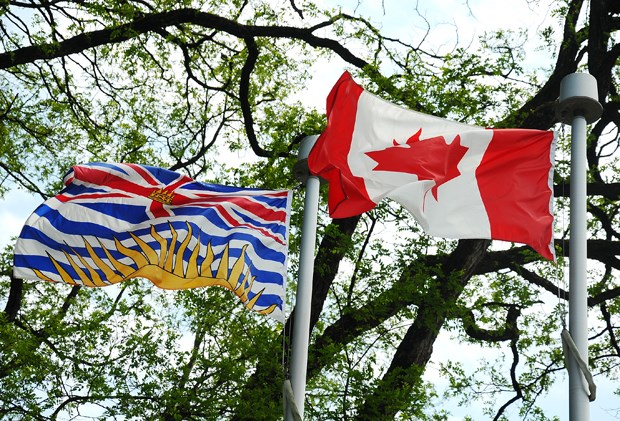The thorny issue of taxing carbon has split this country’s political leaders and has further pushed B.C. Premier John Horgan and Prime Minister Justin Trudeau into each other’s arms.
Just days after his government released its ambitious and far-reaching plan to tackle climate change and wean much of B.C. off fossil fuels, Horgan found himself at a First Ministers’ conference occupying a lonely perch with the prime minister as some other premiers castigated the very idea of having any kind of tax on carbon whatsoever.
Trudeau’s government has passed legislation giving it authority to impose a carbon tax on any provinces that do not already have one. It would be set at $20 a tonne starting next year, and it would rise $10 a year until 2022 (a rebate scheme would also be part of the plan).
The Ontario and Saskatchewan governments, who are planning court action to block it, fiercely oppose the plan. However, Trudeau has vowed to put a “price on pollution” and shows no signs of backing down.
The doom and gloom message coming from the likes of Ontario Premier Doug Ford and Saskatchewan Premier Scott Moe is a bit hard to take from British Columbia’s perspective. To hear them and others tell it, a carbon tax the likes of which Trudeau is pitching would absolutely wreck their provincial economies and send everyone to the unemployment lines.
However, the province (B.C.!) that leads the country in economic performance, job creation and employment levels has – wait for it – a carbon tax, and has had one for 10 years now. In fact, it was increased again this year and Horgan’s government plans to increase it by $5 a tonne each year until 2021, when it will sit at $50 a tonne.
At the meeting, Horgan tried to point out that a province could have a carbon tax and a flourishing economy at the same time, but his argument fell on deaf ears among most of his counterparts (the Maritime premiers are more comfortable with the carbon tax proposal, but they are politically irrelevant to a large degree).
B.C.’s success with the tax – there has been a slight reduction in greenhouse gas emissions since it was introduced, allowing for population growth – no doubt has helped convince Trudeau that putting a price on pollution is the way to go.
It will be interesting to see if Trudeau adopts some other aspects of the new B.C. climate action plan (such as greatly increasing the number of electrical vehicles on our roads, and providing incentives to stop using oil and gas so much).
Of course, there is some political irony here: the B.C. NDP ran against the carbon tax during the 2009 election and found it was a losing position. The party is now the biggest champion of the tax in the entire country.
British Columbians have gotten use to the idea of taxing carbon. The tax is no longer “revenue neutral” (it was tied to an income tax cut when former B.C. premier Gordon Campbell first introduced it) but that has not led to much of an outcry.
The NDP government now intends to use revenues from the tax to fund so-called “green” initiatives that will aid in cutting emissions (including the creation of a large fund to allow large-scale industries like forestry and mining to draw back some of their carbon tax payments if they can be used to lower their operation’s carbon footprint).
It is unclear whether there will continue to be strong public support for a carbon tax once it hits $50 a tonne, but it is certainly possible. Particularly so if Trudeau can stare down provincial opposition to it from provinces like Alberta, Saskatchewan and Ontario (I highly doubt we’ll see a replay of those “yellow vests” protests against a fuel tax in France).
Another bad summer of wildfires and rampant flooding will further bring the need to fight climate change into an ever-sharpening focus.
In the meantime, Horgan and Trudeau will consider each other their most valuable political ally in the country on an issue that dwarfs pretty much anything else in importance. And that will likely spell good news for British Columbia.
Keith Baldrey is chief political reporter for Global BC. [email protected]
What are your thoughts? Send us a letter via email by clicking here or post a comment below.



